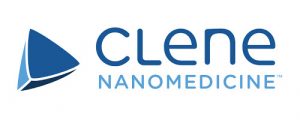
How U.S. Pharmacopeia (USP) Plays a Crucial Role in Bringing New Medicines to Market
For a 202 year-old company, U.S. Pharmacopeia (USP) has kept a relatively low profile in the BioHealth Capital Region (BHCR). However, this is quickly changing.
USP just recently hosted and was a very active participant at the 8th annual BioHealth Capital Region Forum (the Forum) and the 5th annual BioHealth Region Capital Investment Conference, placing the company front and center at two of the region’s most important life sciences networking and financial events.
USP’s CEO Ronald Piervincenzi took part in the Forum’s opening remarks and four USP leaders—Anthony Lakavage, Senior VP of Global External Affairs, Carrie Harney, VP of U.S. Government and Regulatory Affairs, Fouad Atouf, VP of Biologics, and Dennis Hall, VP of Advanced Manufacturing Technologies, led a panel discussion at the Forum entitled, “How Standards Help Bring New Medicines to Market: An Introduction to U.S. Pharmacopeia.” The panel served as an overall introduction to USP and its areas of expertise.
Headquartered in Rockville, Maryland, USP employs approximately 1,300 staff members and has locations across the globe. USP has three primary areas of focus: medicines, food, and dietary supplements. For two centuries, USP has been on a mission to create a world where all have access to high-quality, safe, and beneficial medicines. The non-profit organization is in the business of protecting patients through rigorous science, stringent safety and quality standards, and strong supply chain management that gets safe and efficacious medicines to those in need.
Lakavage kicked off the panel, stating, “USP is one of the first non-profits in U.S. history…the company was established in 1820 by 11 physicians that gathered in Washington D.C. We’re grown significantly over the years. We have a unique governing structure; we are accountable to 500 organizations that are in the USP convention that includes government agencies, regulatory agencies, industry associates, local associations and practitioner associations.”
“We work with stakeholders to help bring the scientific standards and tools that we create to product developers, regulators, and others so they can be optimized. USP also has worked in low and middle income countries for 27 years through the Promoting the Quality of Medicines program, which is funded by USAID, to strengthen regulatory systems and local manufacturers to produce quality medicines,” he added.
USP develops standards and tools through the use of standard-setting committees; these committees are run by 1,000 expert volunteers that include approximately 200 FDA liaisons. These committees focus on biologics, small molecules, excipients, general chapters, healthcare quality/safety, dietary supplements, herbal medicines, and food ingredients. There are currently more than 9,000 USP standards that are used as quality benchmarks across the supply chain.
“Public quality standards developed by USP help provide the benchmarks to ensure a product’s quality across the lifecycle of a medicine,” stated Harney, VP of U.S. Government and Regulatory Affairs. “There are two main standards, product-specific monographs, which are specific to a particular substance and include the expectations for a product’s identity, purity, and strength. Monographs also include tests that validate that what’s being developed actually meets the expectations and criteria. In addition to monographs, we have general chapters that include information on accepted processes, tests, and procedures that facilitate the development, manufacturing, distribution, packaging, and handling of drugs.”
“These standards help make the development, manufacturing, and regulatory processes more efficient,” she added.
These standards are particularly important in the advanced manufacturing space. Advanced manufacturing technologies include continuous manufacturing, manufacturing analytical tools, 3D printing, artificial intelligence, and the increased digitization of the manufacturing process.
“For example, here in the Capital Region, If we’re going to quickly produce a pandemic medicine for the entire U.S population in 100 days, having good manufacturing practices and technologies—backed up by standards for how you go through that process—is critical. You can do a lot of development ahead of time but if you don’t know how to deploy that manufacturing process, that’s a significant loss of time,” shared Hall, VP of Advanced Manufacturing Technologies.
Lakavage correctly noted that the BHCR has a heavier research and development focus on large molecules or biologics and personalized medicine space like cell and gene therapy. USP’s quality and standardization expertise could be invaluable to an industry still searching for process repeatability and consistency and a region with so many exciting companies emerging in this space.
“Standards have evolved to cover the entire product lifecycle. Part of this evolution is to think about the paradigm in biologics: the product is the process. How do you set a standard when the product is the process?” asked Atouf, VP of Biologics.
“You do this by looking at standards so your process performs the way you want it. You look at methods you use to analyze the product and develop the concept of standards that cut across the lifecycle and demonstrate performance of a process or method rather than focusing on a standard that helps you meet a market specification. Cell and gene therapies are especially highly complex. You bring all these components together to construct the product, so we set the standards for the critical components and therefore you can focus on the quality of the product,” continued Atouf.
“This region has a lot of early-stage innovation, and USP standards can be used by these companies as well. Our standards are not only for late-stage companies,” he added. “USP standards help companies build a culture of quality from the get-go and they also help with the adoption of new technologies, which is key in an evolving industry,” he added.
An important focus for USP is making sure the standards they develop for various industries align with the appropriate regulatory agencies, including the FDA for biotechs and small molecule drug developers.
“Our process for developing standards is based on being open, transparent, science-based, and independent. We get participation from independent experts, manufacturers, and the 200 FDA government liaisons, who are subject matter experts that bring the FDA’s perspective to our process,” shared Harney.
“We are fortunate to have robust participation from the FDA in our workshops and stakeholder forums. As the science evolves and new challenges in quality emerge, we have the regulators with us at the beginning to develop standards and other resources that can meet those challenges and have the confidence that they will meet regulatory expectations as well,” she added.”
Following the panel discussion, USP presented a video featuring a company called Amylyx Pharmaceuticals (Amlyx) that applied USP’s standards and methods to advance its lead pipeline candidate to great success.
“Having information to start from about what tests to use or what impurities might for is extremely helpful. It helped us move quickly and intelligently and helped us not waste any steps,” shared Joshua Cohen, Co-CEO of Amylyx.
“We had these promising preclinical results, and now we are going into a clinical trial where our chemicals will go into people with a tough diagnosis. Where do you start? It’s an incredibly tough question when you don’t have the experience and limited funding. You can’t screw it up,” stated Co-CEO Justin Klee.
“Having the USP gold standard to use and also reference back to was essential to making the critical step to determining if our treatment could really help people,” he added. “Because of the pandemic, people are realizing how critical and complicated supply chain issues are—this is why you need standards and something everyone can agree upon. Making sure there is alignment is so critical to ensuring quality.”
Having a resource like USP right in the BHCR is yet another major asset for our biohub and the biotech and pharma companies that call the region home. USP’s team of subject matter experts and the standards they produce can help BHCR startups, early-stage, and even mature biotech and pharmaceutical companies reach their goals by standardizing the drug development lifecycle in strong alignment with the FDA and other regulatory bodies.
Amylyx’s use of USP’s expertise and standardization certainly paid dividends.
On September 29th, 2022, just about a week after the Forum, the FDA approved Amylyx’s treatment for ALS, RELYVRIO™.
- About the Author
- Latest Posts
Steve brings nearly twenty years of experience in marketing and content creation to the WorkForce Genetics team. He loves writing engaging content and working with partners, companies, and individuals to share their unique stories and showcase their work. Steve holds a BA in English from Providence College and an MA in American Literature from Montclair State University. He lives in Frederick, Maryland with his wife, two sons, and the family dog.






